In the world of outdoor cooking, the contact grill has emerged as a versatile and efficient cooking tool. Whether for professional chefs or backyard barbecue enthusiasts, the demand for high-quality contact grills has surged. This is where Original Equipment Manufacturers (OEMs) play a pivotal role, offering customized solutions that cater to the unique needs of businesses. Understanding the intricacies of working with a contact grill OEM manufacturer can be the key to unlocking a world of possibilities for your brand.
Understanding Contact Grill OEM Manufacturing
Contact Grill OEM manufacturing refers to the process by which companies outsource the production of contact grills to specialized manufacturers. This model has become increasingly popular in the culinary appliance industry, offering a streamlined and efficient way for businesses to bring high-quality products to market. Understanding this manufacturing approach involves delving into the intricacies of OEM partnerships, the benefits they provide, and how they can transform the way a brand operates.
The concept of OEM, or Original Equipment Manufacturer, is rooted in the idea of collaboration. An OEM manufacturer produces goods or components that are then branded and sold by another company, often under the latter’s name. In the case of contact grills, this means that a brand may not have the in-house capabilities to design, engineer, or produce the grills themselves, so they seek out a reliable OEM to handle the production.
One of the primary advantages of engaging with an OEM manufacturer for contact grills is the access to specialized expertise. These manufacturers often have a deep understanding of the latest technologies, materials, and manufacturing processes specific to the grill industry. This expertise can lead to innovative designs and superior performance, which can be a significant draw for consumers.
In terms of production efficiency, working with an OEM is a game-changer. These manufacturers typically operate on a larger scale, which means they can achieve economies of scale in terms of materials, labor, and technology. This not only reduces costs but also increases the speed of production, allowing brands to bring their products to market more quickly than if they were to produce them in-house.
Quality control is another crucial aspect of contact grill OEM manufacturing. Reputable OEMs maintain stringent quality standards, ensuring that each grill meets or exceeds industry benchmarks. This reliability is particularly important in the kitchen appliance sector, where customer safety and satisfaction are paramount.
When considering an OEM manufacturer for contact grills, it’s essential to evaluate their design capabilities. A manufacturer that offers comprehensive design services can help brands develop grills that not only meet the required specifications but also stand out in the market. This might include customizing features, materials, and aesthetics to align with a brand’s vision and target audience.
Another factor to consider is the manufacturer’s ability to handle custom orders. Many brands have unique requirements for their products, whether it’s specific sizes, power outputs, or additional features. An OEM that can accommodate these customizations is invaluable for a company looking to differentiate itself in a crowded marketplace.
Supply chain management is also a critical aspect of contact grill OEM manufacturing. A manufacturer with a robust supply chain can ensure a steady flow of materials and components, reducing the risk of production delays. Additionally, a well-managed supply chain can lead to better pricing and inventory control, which can positively impact a brand’s bottom line.
Sustainability is a growing concern for consumers and businesses alike. An OEM manufacturer that prioritizes sustainable practices can help brands align with environmental responsibility. This could involve using eco-friendly materials, reducing waste, or implementing energy-efficient manufacturing processes.
Once a brand decides to work with an OEM manufacturer, the partnership often involves a collaborative effort. The OEM manufacturer may provide regular updates on the production process, quality checks, and any changes that might affect the final product. This open line of communication ensures that the brand is always in the loop and can make informed decisions.
In the realm of customer service, OEM manufacturers typically offer support not just in the production phase but also after the grills are in the hands of consumers. This can include assistance with product issues, technical support, and even the handling of returns and exchanges.
The global landscape of contact grill OEM manufacturing is continually evolving. New technologies and market trends are shaping how grills are designed and produced. Brands that stay abreast of these changes and work closely with their OEM manufacturers can gain a competitive edge.
In conclusion, understanding contact grill OEM manufacturing requires recognizing the benefits it offers, from specialized expertise and production efficiency to quality control and customer service. By forming a strong partnership with a reliable OEM manufacturer, brands can focus on their core competencies while still delivering innovative and high-quality products to their customers.
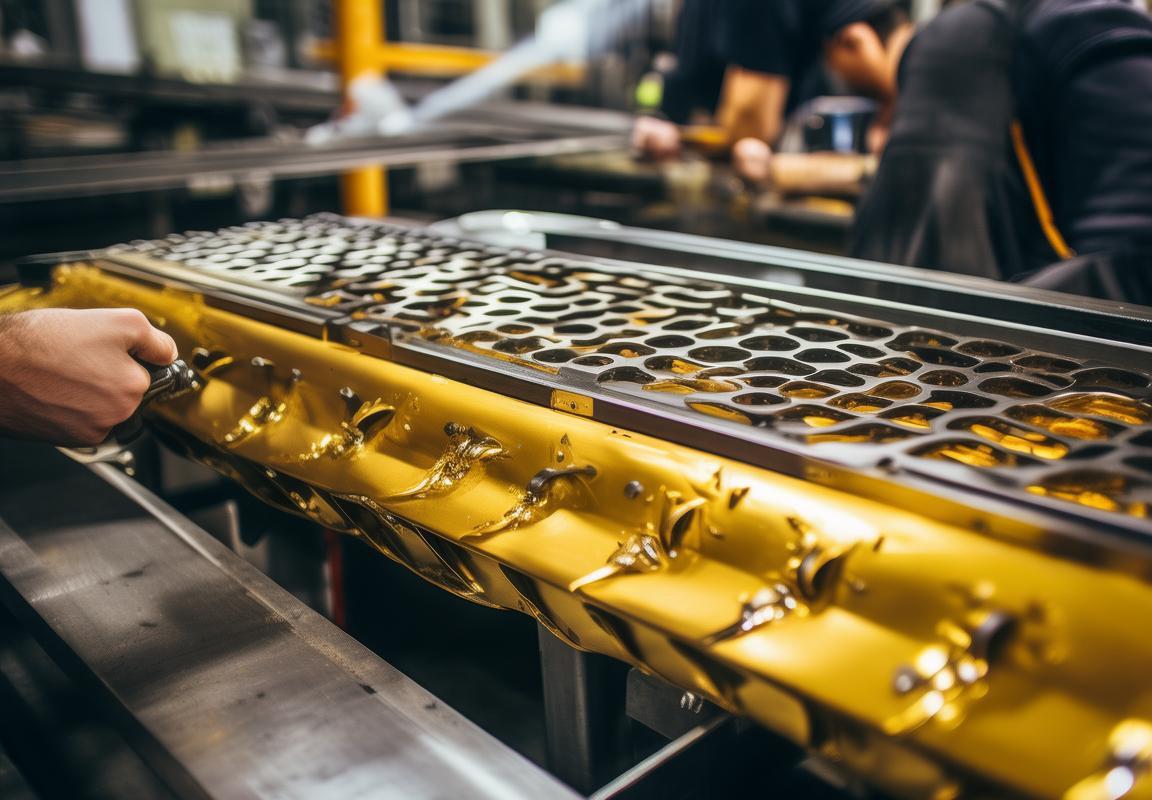
The Role of OEM in Contact Grill Production
OEM manufacturing, or Original Equipment Manufacturing, plays a pivotal role in the production of contact grills, offering a unique set of benefits and contributing significantly to the industry’s landscape. Here’s a deeper look into how OEM fits into the contact grill production process.
Manufacturers often opt for OEM partnerships to tap into the expertise of established suppliers. By working with a specialized OEM, they can rely on the supplier’s knowledge and experience in designing and producing high-quality grills. This collaboration ensures that the end product is not just a functional appliance but also meets stringent quality standards.
Customization is a cornerstone of OEM manufacturing. When it comes to contact grills, OEMs can tailor the design to meet specific customer needs. Whether it’s adjusting the size, adding unique features, or incorporating brand-specific elements, OEMs provide the flexibility to create a product that stands out in the market. This level of customization is often not possible when producing items in-house.
The efficiency of scale is another advantage of working with an OEM. Large-scale production can lead to cost savings, which are then passed on to the end consumer. OEMs have the infrastructure and production lines optimized for high-volume manufacturing, allowing for streamlined processes and reduced lead times. This efficiency translates into a more competitive product for the brand.
Quality control is a non-negotiable in the contact grill industry, and OEM manufacturers are typically well-versed in ensuring that every unit meets these standards. They have the systems in place to rigorously test each grill for durability, safety, and performance. This third-party validation can boost the credibility of the final product in the eyes of consumers.
Innovation is a driving force behind the success of any product, and OEMs are often at the forefront of technological advancements. They are constantly researching new materials, heating technologies, and design elements to push the boundaries of what’s possible in contact grill design. This continuous innovation can give brands a competitive edge by offering cutting-edge products.
Collaboration with an OEM also allows brands to focus on their core competencies. Instead of diverting resources towards production, marketing, and distribution, companies can concentrate on their strengths—whether that’s product development, brand strategy, or customer service. This strategic partnership can lead to a more cohesive and effective business approach.
OEMs also offer a global perspective, with the ability to source components from various parts of the world. This can lead to cost savings and access to a wider range of materials and components. Additionally, many OEMs have established networks for logistics and shipping, making it easier for brands to distribute their products worldwide.
In terms of sustainability, OEM manufacturing can be a boon. By leveraging the expertise of an OEM, brands can implement more environmentally friendly practices in their production processes. This might include using recyclable materials, reducing waste, or optimizing energy usage during manufacturing.
Lastly, the financial aspect of OEM manufacturing is hard to overlook. With the economies of scale and cost-saving measures that OEMs provide, brands can often secure a more favorable financial arrangement. This can be in the form of lower per-unit costs, bulk purchasing discounts, or long-term contracts that guarantee consistent pricing.
In summary, the role of OEMs in contact grill production is multifaceted, encompassing customization, efficiency, quality control, innovation, strategic partnerships, global sourcing, sustainability, and financial benefits. For brands looking to enter the market or enhance their existing product line, partnering with an experienced OEM manufacturer can be a game-changer.
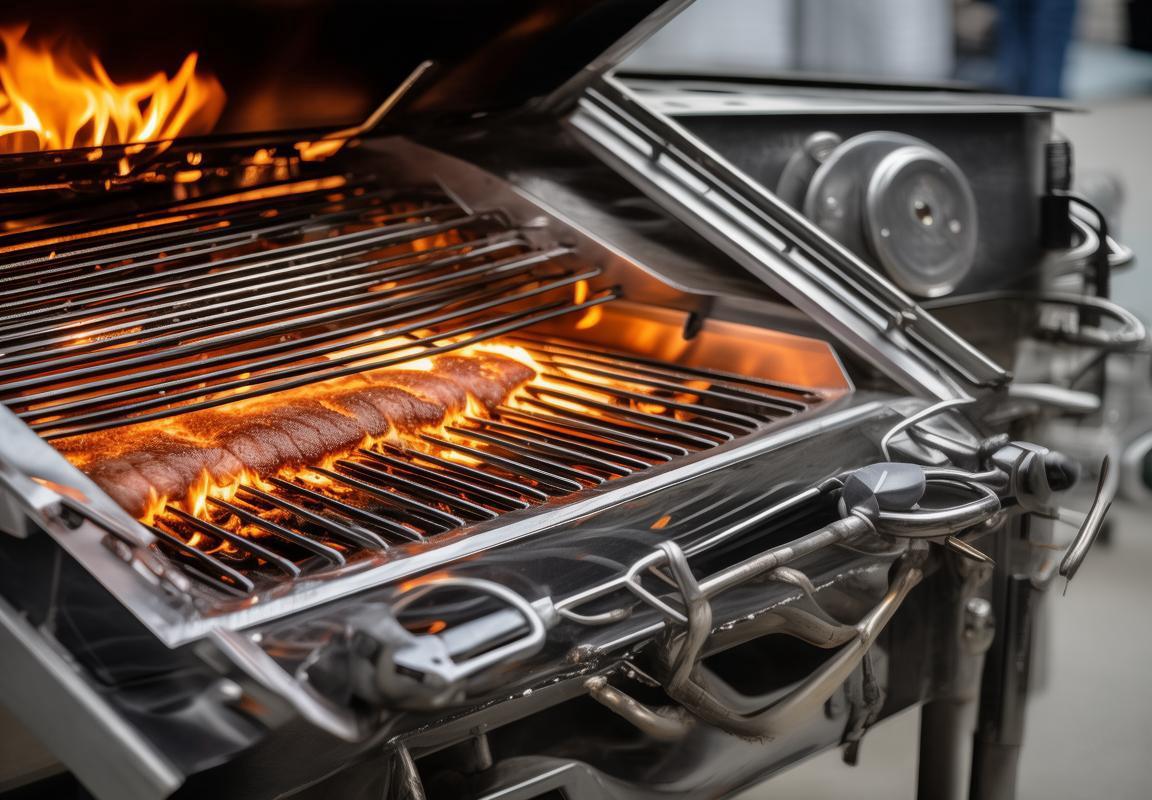
Key Benefits of Partnering with a Contact Grill OEM Manufacturer
When it comes to partnering with a Contact Grill OEM Manufacturer, there are several key benefits that can significantly impact your business. From streamlined production processes to cost savings and enhanced product quality, here’s a closer look at the advantages of collaborating with an OEM for your contact grill needs.
1. Expertise and ExperienceOEM manufacturers have a wealth of experience in the production of contact grills. This means they understand the intricacies of the manufacturing process, from design to assembly. Their expertise can translate into a product that meets the highest industry standards, ensuring that your customers receive a reliable and high-quality grill.
2. Customization and FlexibilityOne of the standout benefits of working with an OEM is the ability to customize your product. Whether you’re looking to tweak the design, add new features, or create a completely unique model, an OEM can work closely with your team to bring your vision to life. This flexibility allows you to cater to specific market needs and differentiate your brand from competitors.
3. Cost-Effective ProductionOutsourcing production to an OEM can be a cost-effective solution. OEM manufacturers often operate on a larger scale, which means they can leverage economies of scale to reduce costs. They have the infrastructure, supply chain, and expertise to produce at a lower cost per unit, potentially saving you thousands or even millions of dollars over time.
4. Focus on Core CompetenciesBy partnering with an OEM, your company can focus on what it does best—your brand, marketing, and customer service. This strategic outsourcing allows you to free up valuable resources and manpower that would otherwise be tied up in production. It’s a win-win situation where you can enhance your competitive edge while the OEM handles the production details.
5. Quality Control and AssuranceOEM manufacturers are typically committed to maintaining stringent quality control measures. This means that every aspect of the production process, from raw materials to final assembly, is monitored to ensure that the final product meets or exceeds your standards. This level of quality assurance can help build trust with your customers and protect your brand reputation.
6. Faster Time to MarketWhen you work with an OEM, you can significantly reduce the time it takes to bring a new product to market. OEMs are equipped to handle the entire production process, from design to manufacturing, often with a quicker turnaround than if you were to produce the grills in-house. This can be particularly beneficial if you’re looking to launch a new product to meet a market opportunity or seasonal demand.
7. Access to Advanced TechnologyOEM manufacturers often invest in the latest technology to improve efficiency and reduce waste. By partnering with them, you gain access to these advanced tools and methods, which can lead to a more efficient production process and a more innovative final product.
8. ScalabilityAs your business grows, the need for increased production capacity may arise. An OEM can easily scale up production to meet your expanding demand without the need for significant investment in additional equipment or facilities. This scalability ensures that you can continue to meet customer needs without interruption.
9. Reduced RiskWhen you’re introducing a new product or entering a new market, there’s always an element of risk. By working with an established OEM, you can mitigate some of this risk. They have the experience to navigate potential pitfalls and can provide valuable insights into market trends and consumer preferences.
10. Continuous ImprovementA good OEM manufacturer is not just a production partner; they’re also a source of continuous improvement. They can provide feedback on the manufacturing process, identify areas for enhancement, and suggest innovations that could lead to improved performance, durability, or user experience.
In summary, partnering with a Contact Grill OEM Manufacturer offers a range of benefits that can enhance your business’s capabilities, reduce costs, and improve the quality of your products. From expert craftsmanship and customization to cost savings and market agility, the strategic relationship with an OEM can be a game-changer for your contact grill production.
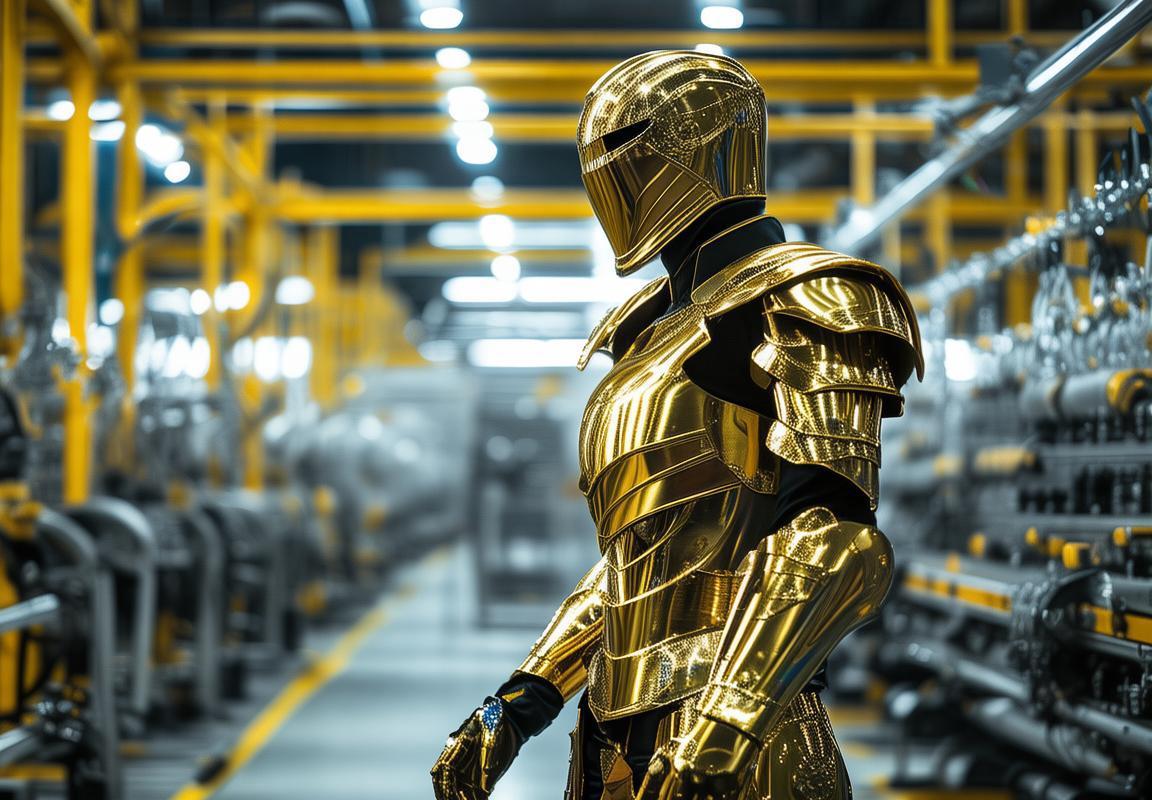
How to Choose the Right Contact Grill OEM Manufacturer
When it comes to selecting the right Contact Grill OEM Manufacturer, it’s crucial to consider several factors to ensure that you’re partnering with a company that aligns with your brand’s values and product expectations. Here’s a breakdown of key considerations:
-
Quality Control and StandardsLook for a manufacturer that adheres to stringent quality control measures. This includes not only the manufacturing process but also the raw materials used. A reputable OEM should be able to provide certifications and demonstrate their commitment to high-quality products.
-
Customization and FlexibilityEvery brand has unique needs and specifications. The right OEM manufacturer should offer customization options, allowing you to tailor the design, features, and branding of the contact grill to match your market strategy. Flexibility in design and production can be the difference between a standard product and a standout one.
-
Experience and Industry KnowledgeAn experienced OEM manufacturer will have a deep understanding of the contact grill market. They’ll be familiar with industry trends, customer preferences, and the latest technologies. This knowledge can translate into a product that is not only innovative but also market-ready.
-
Capacity and ScalabilityConsider the manufacturer’s production capacity and their ability to scale up or down based on your business needs. A manufacturer that can handle large orders efficiently is ideal, especially as your brand grows and demand increases.
-
Supply Chain and LogisticsThe efficiency of the supply chain is vital for ensuring timely delivery and reducing costs. A reliable OEM should have a robust supply chain that minimizes lead times and minimizes the risk of delays due to supply chain disruptions.
-
Cost-effectivenessWhile quality is paramount, cost-effectiveness is equally important. Look for a manufacturer that offers competitive pricing without compromising on quality. This could mean comparing quotes, negotiating terms, and understanding the long-term cost implications.
-
Technology and InnovationThe contact grill industry is continually evolving. Your OEM should be at the forefront of technological advancements, offering you the opportunity to incorporate new features and improvements into your product.
-
Certifications and ComplianceEnsure that the OEM manufacturer complies with all relevant industry standards and regulations. This includes safety certifications, environmental standards, and any specific regulations that apply to your market.
-
Communication and CollaborationA strong line of communication is essential for a successful partnership. The OEM should be responsive, open to feedback, and willing to collaborate closely with your team. Regular updates and clear communication can prevent misunderstandings and ensure that the product meets your expectations.
-
Post-production SupportConsider the level of support the OEM provides post-production. This includes after-sales service, technical support, and warranty coverage. A manufacturer that stands behind their product is more likely to be reliable throughout the partnership.
-
Feedback and ReputationResearch the reputation of the OEM manufacturer. Look for reviews, testimonials, and case studies from other clients. Positive feedback and a good track record can be indicators of a reliable partner.
-
Long-term Relationship PotentialThink about the potential for a long-term relationship. A manufacturer that is invested in building a sustainable partnership is more likely to be committed to your brand’s success over time.
By carefully considering these aspects, you can make an informed decision when choosing a Contact Grill OEM Manufacturer. It’s about finding a balance between quality, cost, and the ability to grow with your brand’s evolving needs.

The Process of Working with a Contact Grill OEM Manufacturer
Navigating the complexities of the contact grill market can be daunting, but partnering with the right OEM manufacturer can streamline your production process and enhance your product offerings. Here’s a detailed look at what it entails to work with a contact grill OEM manufacturer:
Understanding the Design and Development PhaseWhen collaborating with an OEM manufacturer, the initial phase involves a deep dive into the design and development of your contact grill. This is where your vision comes to life, and the manufacturer’s expertise in engineering and design plays a crucial role. They’ll work closely with you to refine your product specifications, ensuring that the final design meets your quality standards and market demands.
Quality Control and Materials SourcingQuality is paramount in the contact grill industry, and an OEM manufacturer will have robust quality control measures in place. They source high-quality materials that are durable and safe for use. From the metal alloys used in the grill plates to the electrical components, each part of the grill is carefully selected to ensure longevity and performance. The manufacturer’s ability to maintain strict quality control throughout the production process is a testament to their commitment to excellence.
Customization and FlexibilityOne of the key advantages of working with an OEM manufacturer is the level of customization they offer. Whether you need a specific size, shape, or feature for your contact grill, an experienced OEM can accommodate these requests. They understand that the market is dynamic and that being able to adapt to customer needs is crucial. This flexibility extends to the ability to modify existing designs or create entirely new products from the ground up.
Supply Chain Management and LogisticsA reliable OEM manufacturer will have a well-established supply chain management system. This ensures that your production process runs smoothly, with timely delivery of components and finished products. They’ll manage logistics efficiently, coordinating with suppliers and distributors to minimize lead times and reduce the risk of stockouts. This level of coordination is essential for maintaining inventory levels and meeting production deadlines.
Technical Support and After-Sales ServiceFrom the design phase to the final product, technical support is a vital aspect of the relationship with an OEM manufacturer. They provide ongoing technical assistance, ensuring that your product meets all regulatory standards and safety requirements. Post-production, they offer after-sales service, which includes warranty support and troubleshooting. This support network is invaluable for maintaining customer satisfaction and brand reputation.
Prototyping and TestingBefore mass production, a prototype phase is essential to validate the design and functionality of the contact grill. An OEM manufacturer will create a working model, which you can review and test for performance and safety. This iterative process allows for any necessary adjustments to be made before moving forward with full-scale production. The manufacturer’s willingness to invest in prototyping demonstrates their commitment to delivering a high-quality product.
Cost Efficiency and ScalabilityOne of the primary reasons businesses opt for OEM manufacturing is cost efficiency. OEMs can leverage economies of scale to reduce production costs, which can be passed on to you as the client. As your business grows, an OEM manufacturer can scale production to meet increased demand without compromising on quality. This scalability ensures that your product line can expand as your market share grows.
Intellectual Property ProtectionWhen working with an OEM manufacturer, it’s crucial to ensure that your intellectual property is protected. They should have measures in place to prevent unauthorized copying of your design or technology. This might include non-disclosure agreements (NDAs) and other legal safeguards to protect your brand and innovations.
Communication and CollaborationEffective communication is the backbone of a successful partnership with an OEM manufacturer. Regular updates, clear communication channels, and collaborative problem-solving are essential for a smooth working relationship. They should be transparent about production timelines, quality checks, and any potential issues that may arise. This open dialogue fosters trust and ensures that both parties are aligned with the project’s goals.
Compliance with Industry StandardsContact grills must comply with various industry standards, including electrical safety, material safety, and consumer protection regulations. An experienced OEM manufacturer will be well-versed in these standards and will ensure that your product meets or exceeds them. This compliance not only protects your customers but also gives you a competitive edge in the market.
In conclusion, working with a contact grill OEM manufacturer involves a series of steps that span from initial design to final production and beyond. The right manufacturer can provide the expertise, resources, and support needed to bring your product to market efficiently and effectively. By focusing on quality, customization, cost efficiency, and compliance, you can establish a strong partnership that drives your business forward.
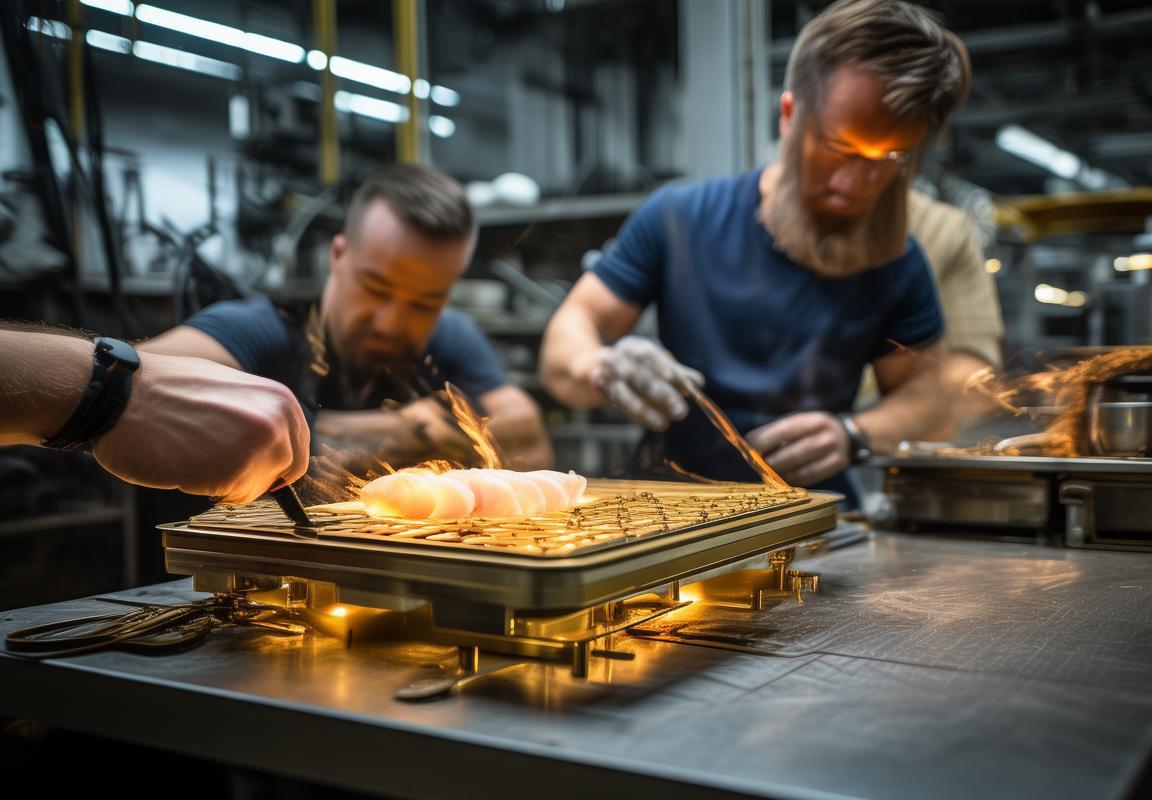
Case Studies: Success Stories with Contact Grill OEM Manufacturers
In the world of contact grill manufacturing, there are numerous success stories that showcase the transformative power of partnering with the right Original Equipment Manufacturer (OEM). These tales often reveal the journey from a single innovative idea to a market-leading product. Let’s delve into a few of these inspiring case studies.
1. The Rise of a Compact Grill LineA small startup with a vision for compact, efficient grills approached a reputable OEM manufacturer. The OEM, with its extensive experience in metalworking and electrical engineering, took on the challenge. They began by analyzing the startup’s initial design, identifying areas for improvement, and then crafting a prototype. The OEM’s expertise in material selection and heat distribution led to a grill that not only looked sleek but also performed exceptionally well. The startup’s product quickly gained traction, and the OEM’s precision engineering was a key factor in their success.
2. Customization and InnovationOne established brand in the grill market wanted to expand its product line with a high-end contact grill. They turned to an OEM that had a track record of delivering custom solutions. The OEM worked closely with the brand to understand their specific requirements, including the need for advanced temperature control and a unique cooking surface. Through a series of iterative design and testing phases, the OEM developed a grill that not only met but exceeded the brand’s expectations. The end product was a game-changer in the market, thanks to the OEM’s ability to innovate and customize.
3. Scaling Up ProductionA budding entrepreneur had a novel idea for a contact grill that combined the convenience of a countertop model with the power of a professional-grade grill. They chose an OEM known for its ability to scale production efficiently. The OEM started by creating a detailed production plan, ensuring that every aspect of the manufacturing process was optimized for speed and quality. As the demand for the grill surged, the OEM’s scalable infrastructure allowed the entrepreneur to meet orders without compromising on product quality or delivery times.
4. Navigating International RegulationsAn OEM manufacturer worked with a global brand that was looking to enter new markets with their contact grill. The challenge was to ensure compliance with various international safety and quality standards. The OEM’s team of experts conducted thorough research and implemented the necessary modifications to the grill design. Their meticulous approach not only helped the brand pass inspections but also earned them a reputation for reliability and adherence to global standards.
5. Enhancing Brand IdentityA mid-sized grill company wanted to refresh its product line and strengthen its brand identity. They collaborated with an OEM that had a reputation for design excellence. The OEM conducted market research to understand consumer preferences and then developed a range of contact grills that were not only functional but also visually appealing. The new designs helped the brand stand out in a crowded market and resonated with consumers, leading to increased sales and brand loyalty.
6. Sustainable ManufacturingAn eco-conscious company sought an OEM that shared its commitment to sustainability. The OEM, with a focus on green manufacturing practices, was the perfect fit. Together, they designed a contact grill that was not only energy-efficient but also made from recycled materials. The OEM’s sustainable approach to production not only aligned with the company’s values but also attracted environmentally conscious consumers, giving the brand a competitive edge.
7. Rapid Prototyping and IterationA tech startup had a revolutionary concept for a contact grill that could be controlled via a smartphone app. They needed an OEM that could turn their concept into a reality quickly. The OEM’s rapid prototyping capabilities allowed them to create a working model within weeks. Through a process of continuous iteration, the OEM refined the design, ensuring that the grill was user-friendly and reliable. The startup’s innovative product was a hit at industry trade shows, and the OEM’s agility played a crucial role in their early success.
These case studies highlight the multifaceted role that contact grill OEM manufacturers play in bringing innovative products to market. From design and engineering to production and compliance, these partnerships are key to turning visions into viable products that resonate with consumers and drive business growth.
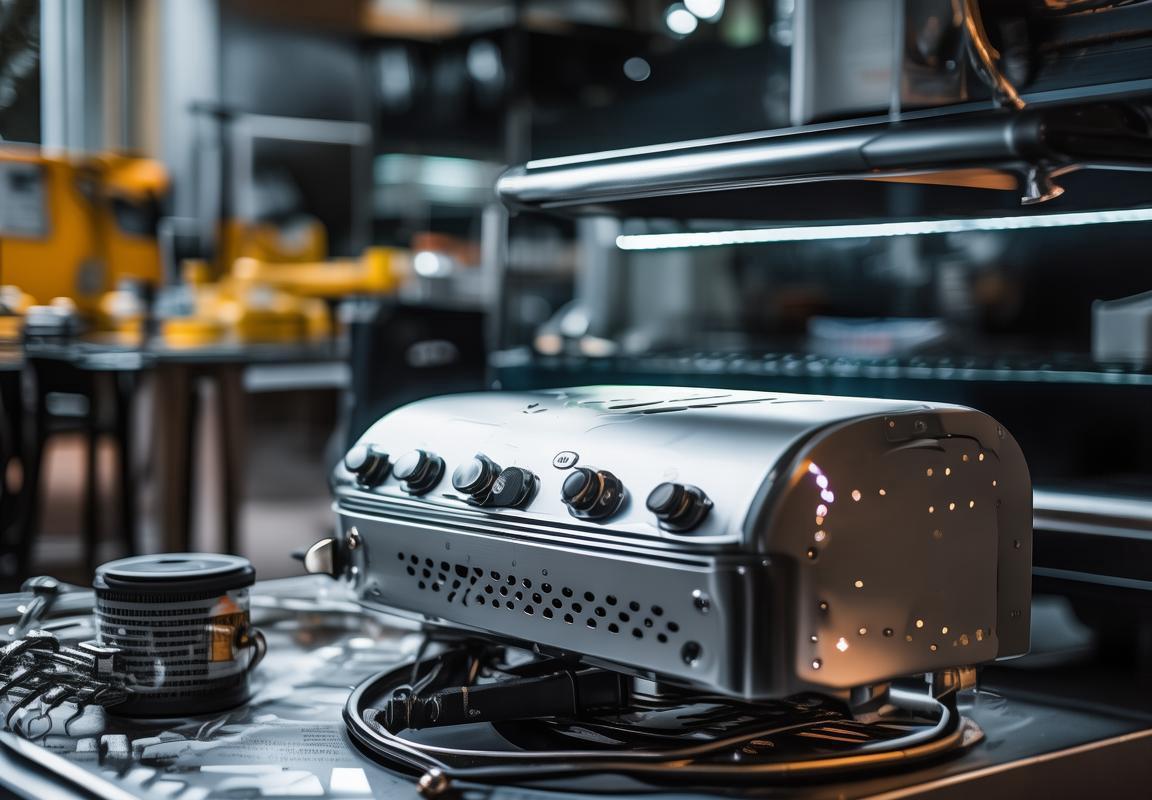
The Future of Contact Grill OEM Manufacturing
The evolution of technology has revolutionized the way we approach cooking, and contact grill OEM manufacturing is no exception. As the demand for efficient and versatile cooking solutions grows, the future of this industry is poised to be shaped by several key trends and innovations.
Innovation in Material ScienceMaterials are the backbone of any product, and the contact grill OEM manufacturing sector is no different. The future holds promise in the development of new materials that are not only durable but also energy-efficient. Advanced alloys and composites that can withstand high temperatures and distribute heat evenly are likely to become standard in contact grill production, enhancing both performance and longevity.
Smart Technology IntegrationSmart grills are already making waves in the market, and the future is expected to see even more integration of smart technology. Features like remote control, temperature regulation, and even predictive maintenance could become standard in contact grills. This not only makes cooking more convenient but also ensures that the grills are using energy efficiently and safely.
Sustainability FocusWith environmental concerns at the forefront of global consciousness, sustainability is set to become a cornerstone in contact grill OEM manufacturing. This could mean the use of recycled materials, energy-saving designs, and eco-friendly manufacturing processes. As consumers become more environmentally conscious, manufacturers will need to adapt by offering greener products that align with these values.
Customization and PersonalizationThe future of contact grill OEM manufacturing might also see a shift towards greater customization and personalization. Customers could have the option to choose from a variety of grill configurations, sizes, and features to suit their specific needs. This could include different cooking surfaces, additional attachments, and even personalized branding for commercial applications.
Global Market ExpansionAs the popularity of contact grills continues to rise, the market is expected to expand globally. OEM manufacturers will likely see an increase in demand from emerging markets, where there is a growing middle class with a penchant for modern kitchen appliances. This expansion will require a strategic approach to localization, ensuring that products meet the unique needs and preferences of different regions.
Regulatory ComplianceThe future will also bring stricter regulations regarding safety, health, and environmental standards. Contact grill OEM manufacturers will need to stay abreast of these changes and ensure that their products comply with international and local regulations. This may involve investing in research and development to meet these evolving standards.
Collaboration and PartnershipsCollaboration between OEM manufacturers and technology providers, as well as with retailers and end-users, will be crucial. By working together, these entities can drive innovation, streamline production processes, and ensure that the final product meets the highest standards of quality and performance.
E-commerce and Direct-to-Consumer ModelsThe rise of e-commerce is changing the landscape of manufacturing. Contact grill OEM manufacturers might see an increase in direct-to-consumer sales, allowing them to build stronger relationships with customers and gather valuable feedback for product improvement. This shift could also lead to more personalized marketing strategies and a focus on building brand loyalty.
Investment in Research and DevelopmentTo stay competitive and meet the demands of the future, contact grill OEM manufacturers will need to invest heavily in research and development. This includes exploring new cooking technologies, materials, and design concepts that can offer unique selling points and differentiate their products in a crowded market.
In conclusion, the future of contact grill OEM manufacturing is bright, with opportunities for innovation, sustainability, and global expansion. By embracing these trends and staying adaptable, manufacturers can ensure that their products continue to meet the evolving needs and expectations of consumers worldwide.
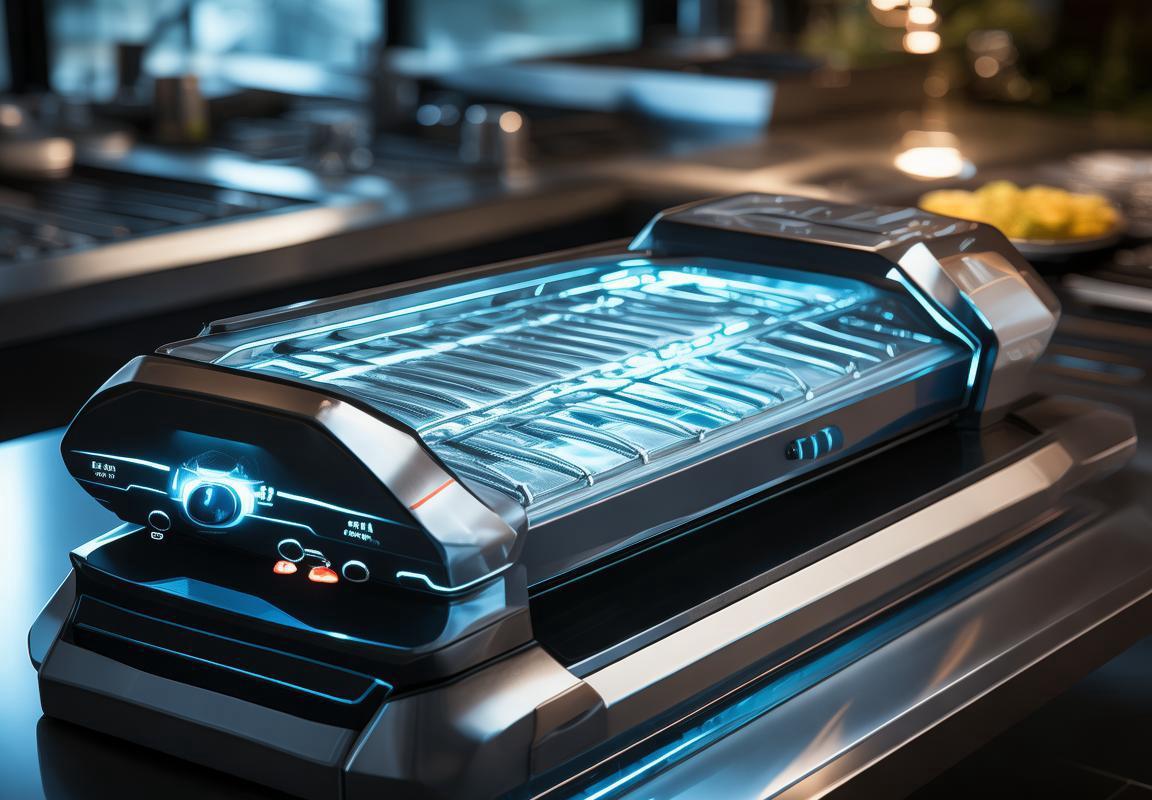
Conclusion: Elevating Your Grill Game with an OEM Manufacturer
The collaboration with an OEM manufacturer can significantly elevate the quality and performance of your contact grill offerings. Here’s how this partnership can transform your business:
Enhancing Product Quality: OEM manufacturers are experts in their field, ensuring that the components and assembly of your contact grill meet the highest industry standards. Their specialized knowledge translates into a superior product that stands out in the market.
Streamlining Production: By outsourcing to an OEM, you can focus on your core business while the manufacturer handles the intricacies of production. This streamlined process reduces overhead and allows you to scale your operations efficiently.
Cost-Effective Solutions: OEM manufacturers often benefit from economies of scale, which means they can produce items more cost-effectively than if you were to do it in-house. This can lead to significant savings on materials, labor, and other production costs.
Customization Flexibility: Working with an OEM gives you the freedom to customize your contact grill to meet specific market demands or to align with your brand identity. From design changes to material choices, the possibilities are vast.
Risk Mitigation: When you partner with an OEM, you share the risks associated with production. This includes the risks of quality control, supply chain disruptions, and market trends. The OEM manufacturer’s expertise helps to navigate these challenges.
Time-to-Market Reduction: The expertise and efficiency of an OEM manufacturer can significantly reduce the time it takes to bring a new product to market. This is crucial in a fast-paced industry where staying ahead of the competition is key.
Global Reach: Many OEM manufacturers have a global presence, which means they can help you expand your market reach. They may have established relationships with suppliers and distributors worldwide, making it easier for you to enter new markets.
Focus on Innovation: By relying on an OEM manufacturer for production, you can allocate more resources to research and development. This can lead to innovative designs and features that keep your product fresh and competitive.
Brand Consistency: Ensuring that every product aligns with your brand’s image and values is vital. An OEM manufacturer can help maintain consistency across all your product lines, reinforcing your brand identity.
Customer Satisfaction: High-quality products often lead to increased customer satisfaction. An OEM manufacturer can help you deliver a reliable, durable, and user-friendly contact grill, which can lead to higher customer loyalty and repeat business.
Marketing Support: Some OEM manufacturers offer additional marketing support, such as product packaging design, promotional materials, and even sales training. This can be invaluable in launching your product successfully.
Supply Chain Efficiency: A skilled OEM manufacturer will have a well-oiled supply chain that minimizes waste and ensures timely delivery. This efficiency can be a major competitive advantage in the market.
Quality Control: One of the most significant benefits of working with an OEM manufacturer is the stringent quality control they maintain. They are committed to delivering products that meet or exceed industry standards, which can give you peace of mind.
Collaborative Growth: By forming a strong partnership with an OEM manufacturer, you can collaborate on continuous improvement and innovation. This can lead to a mutually beneficial relationship that drives growth for both parties.
In summary, the benefits of working with a contact grill OEM manufacturer are multifaceted, encompassing everything from enhanced product quality and cost savings to increased market reach and innovation. Such a partnership can be the cornerstone of a successful product launch and a strategic advantage in the competitive landscape of the grill industry.